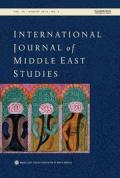
Abstract:
Colonial state-building in Protectorate Morocco, particularly the total “pacification” of territory and infrastructural development carried out between 1907 and 1934, dramatically transformed the social and political context in which collective identity was imagined in Moroccan society. Prior scholarship has highlighted the struggle between colonial administrators and urban Arabophone nationalist elites over Arab and Berber ethnic classifications used by French officials to make Moroccan society legible in the wake of conquest. This study turns to the understudied question of how rural, tribal communities responded to state- and nation-building processes, drawing on a unique collection of Tamazight (Berber) poetry gathered in the Atlas Mountains to illuminate the multiple levels on which their sense of group identity was negotiated. While studies of identity in the interwar Arab world have concentrated on how Pan-Islamism, Pan-Arabism, and local nationalisms functioned in the Arab East, this article changes the angle of analysis, beginning instead at the margins of the Arab West to explore interactions between the consolidation of nation-sized political units and multivocal efforts to reframe the religious and ethnic parameters of communal solidarity during the colonial period.